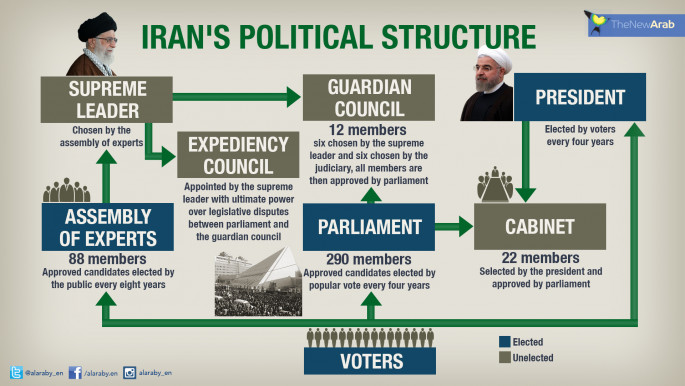Women chess players react angrily to Iran's hijab rules
Hours after world chess body, Fide's Commission for Women's Chess, announced that the tournament would take place in Iran next year players took to social-media to voice their outrage.
Some even threatened to opt out of the tournament saying that by going through with the decision Fide were turning a blind-eye to gender discrimination.
After the Iranian Revolution in 1979, women by law were required to cover their heads in public spaces.
The ruling still stands today and is enforced by Iran's "morality police", Gasht-e Ershad, whose job is to enforce the 'correct' Islamic code of conduct and dress.
Rebellion
Nazi Paikidze, a high-profile US women's chess champion is one of the many participants who threatened to opt out.
"It is absolutely unacceptable to host one of the most important women's tournaments in a venue where, to this day, women are forced to cover up with a hijab," she said.
"I understand and respect cultural differences. But, failing to comply can lead to imprisonment and women's rights are being severely restricted in general," the Telegraph reported.
The Women's World Championship champion who will be representing the US said that Iran does not feel like a safe place for women to compete.
"If the situation remains unchanged, I will most certainly not participate in this event."
She clarified the claim in a tweet: "It's very upsetting that I have to miss my first Women's World Championship. For many reasons" and attached a screenshot of the US State Department's Iran Travel Warning page advises citizens to be "very carefully weigh the risks of travel and consider postponing their travel".
 |
Ecuadorian-born former Pan-American champion Carla Heredia also echoed Paikidze's thoughts: "No institution, no government, nor a Women's World Chess Championship should force women to wear or to take out a hijab," the Telegraph reported.
"This violates all what sports means. Sport should be free of discrimination by sex, religion and sexual orientation."
Barriers
She also said the ban on unmarried men and women sharing a room could pose a problem for male and female coaches and players who want to practice in private.
Susan Polgar, the chair of Fide and a US grandmaster said that participants should embrace other cultures and learn to respect differences.
"I have travelled to nearly 60 countries. When I visited different places with different cultures, I like to show my respect by dressing up in their traditional style of clothing. No one asked me to do it. I just do it out of respect," she said.
"I personally would have no issues with wearing a head scarf as long as it is the same to all players. I believe the organisers provided beautiful choices for past participants of Women's Grand Prix."
Fide is still licking its wounds after its multi-millionaire President Kirsan Ilyumzhinov was put on the US sanctions list for suspected business dealings with Syrian President Bashad al-Assad's regime.
Earlier this year during a smaller women's chess tournament in Iran, a report by the Telegraph showed that a number of chess players had conveyed their anger at having to wear hijabs.
Fide hasn't officially released any official statements commenting on the ordeal as of yet.
![[Getty]Female chess-players react angrily to hijab [Getty]Female chess-players react angrily to hijab](/sites/default/files/styles/image_345x195/public/media/images/28AD1881-4D05-4ECC-8AC8-695CF53F4B0B.jpg?h=d1cb525d&itok=2D7MTb3s)




 Follow the Middle East's top stories in English at The New Arab on Google News
Follow the Middle East's top stories in English at The New Arab on Google News
![Israeli forces ordered bombed Gaza's Jabalia, ordering residents to leave [Getty]](/sites/default/files/styles/image_330x185/public/2176418030.jpeg?h=a5f2f23a&itok=_YGZaP1z)

